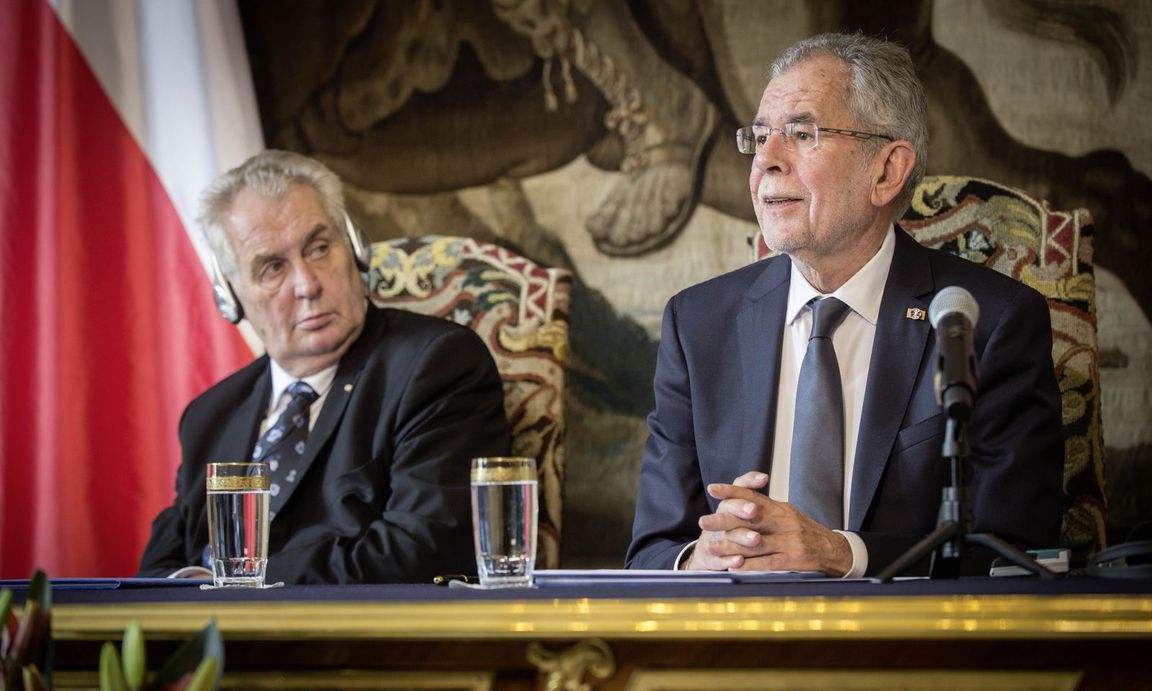By Modeste Schwartz.
Romania – Let’s set the scene first:
Apart from speculations (some more or less scientific, others frankly zany) surrounding their distant origin, the Szeklers have for centuries been a small Hungarian-speaking mountain-dwelling population, nestled in the centre of the Eastern Carpathian arc. Its current territory coincides roughly with two counties (Harghita and Covasna) of the Romanian state, located in the part of that state (called lato sensu Transylvania) which prior to 1918 belonged to the Austro-Hungarian Empire. The originality of the Szeklers compared to other Hungarian-speaking groups left “outside the borders” by the Treaty of Trianon is
1) their number and density of population: at least half a million people, forming a compact population (in the Szekler Land, the local proportion of Hungarian speakers falls almost nowhere under 80%, and many Romanians – including public officers transferred on the spot – end up learning Hungarian to get by in everyday life) and
2) the location of the Szekler Land, almost in the middle of present-day Romania, separated from the other compact Hungarian-speaking areas (Hungary, Partium, Transcarpathia) by hundreds of kilometers of dense Romanian population.
Under such conditions, it is immediately understandable that, following the modern European ways, the only viable solution is a regional autonomy guaranteeing on the one hand to Romania the respect of its territorial integrity, on the other hand to the Szeklers the respect of their culture and the possibility of determining their own future (especially economic), following the principle of subsidiarity.
What none of the actors in the drama can afford to say publicly (but I can take advantage of my position as an external observer) is that this autonomy, for a large part, has existed for a long time, in proportions of which no ethnic minority in France has ever dared to dream: one can receive Hungarian-language instruction from kindergarten to doctorate in the Szekler Land, each small town has its own Hungarian-language theater and, of course, the technological instruments of globalization have also allowed the Szeklers to restore permanent contact with the media of the rest of the Hungarian world. But of course, the Szeklers do not spontaneously compare themselves to Bretons or Alsatians, but rather to their ancestors who, before 1918, had no need to speak Romanian in institutions (e.g., judicial) – or to the small Romanian minorities in present-day southeast Hungary, who also enjoy extensive cultural rights.
Anyway, ever since the “Black March” of 1990 in Târgu-Mureş / Marosvásárhely (violent inter-ethnic riots in a large Transylvanian town on the edge of the Szekler Land, which resulted in five dead and nearly 300 seriously injured), the Szekler Land no longer gave any signs of political violence in 27 years of post-dictatorship politics. The recent tripartite rapprochement between FIDESZ, PSD and UDMR / RMDSZ (abbreviations referring respectively to the parties in power in Budapest and Bucharest, and to the Hungarian minority party in Romania), on which we have already reported, also encouraged optimism, allowing hope for a lasting and just resolution of the problem – such as only two nationalist powers (sure of their backs and free from the suspicion of cosmopolitanism) can bring it, given the cultural specificities of southeastern Europe.
In this context, the “gaffe” made last Wednesday (January 10) by the Romanian Prime Minister Mihai Tudose arrives as a cold shower, with a slight scent of absurdity (or manipulation?). Phoning-in to a televised talk-show on the subject of a petition for autonomy signed by the three main parties of the Szekler Land, the latter seems to have declared that “if the Szekler flag were to be hoisted, those responsible [for this unconstitutional act] would float in the wind [would be hanged] by its side”. I use the verb “seem”, since this quotation, whose transcription is not consistent in the various reports given by the Romanian press, seems to lend itself to multiple interpretations (for some, it would allude, not to the Szekler flag – symbol of the autonomist claim – but to a Hungarian monarchical flag that extremists would have attempted to hoist last summer, stirring up painful memories dating from the Second World War). The moderator of the show, Rareş Bogdan (a prominent Atlanticist propagandist), could also (off the record, before the show) have pushed Tudose to say so, using a well-known tactic of nationalistic stake-raising. In any case, even if his remarks have been poorly transcribed or misinterpreted, the absence, after two days, of any denial or excuse on the part of Mihai Tudose betrays either extreme incompetence or the desire to “let the word stand” – a desire as guilty as the (supposed) statement itself. He could have, for example, grabbed the pole extended to him by his own ambassador in Budapest, who, summoned by the head of the Hungarian diplomacy, claimed that it was a “semantic problem”, and that the prime minister had been misinterpreted: on the one hand, P. Szijjártó does not seem to have given much credit to these explanations – but above all: we are still awaiting, at the time of this writing, a confirmation from the author of the sentence. Tudose could certainly, in the last instance, blame this verbal slip, uttered in a rather “slurred” voice (hence some of the difficulties of interpretation …), on his alcohol consumption habits – otherwise well-known and widely commented upon by the Romanian press – but it is not certain that his reputation as a statesman would come out of it intact.
Of course, the whole Hungarian-language press is now up in arms: a perfectly justified indignation, moreover – even if it remains interesting to note that, among the first to throw a punch, we notice some websites of Transatlantic Hungarian expatriates, who, if they receive political orders from any part of the world, probably do not receive them from Budapest.
Indeed, his telephone participation in the show led by Rareş Bogdan (a probable infiltrator of the Romanian deep state) – a show in which he was in no way obliged to take part – would already suffice to cast doubt on M. Tudose’s political and moral integrity. During that genuine session of Russophobic and Magyarophobic indoctrination, a fearful bunch of pro-NATO ideological mercenaries spent most of the show’s air time (an hour and a quarter) ritually repeating the mantra of “Kelemen [president of the UDMR] is Orbán’s agent who is Putin’s agent” (naturally without any evidence, in the purest echo chamber style). The roles were carefully distributed: while the self-proclaimed expert D. Dungaciu (who also performs the dirty work of the West in the Republic of Moldova) presented the V4 as an anti-Romanian conspiracy and while the eternally young neo-conservative politician M. Neamţu strove to drive a wedge between Hungary and Poland, the tabloid esoterist Oreste Teodorescu reproached the same V4 for drifting too far away from the West. Will the leaders of Warsaw, Budapest, Prague and Bratislava take the time to learn Romanian to benefit from the wise advice of the President of the Romanian-Arab Culture and Press Club, or will they prefer to speak directly, in English, to his bosses? The future will tell.
Tudose seems to confirm the rule that some of us thought they could formulate during the curious “desertion” of the previous Prime Minister, S. Grindeanu: whatever the proposals presented by the socio-conservative parliamentary majority PSD-ALDE (parties chaired respectively by L. Dragnea and C. P. Tăriceanu), any candidate receiving the endorsement of President K. Johannis will a priori be a man under the control of the deep state, and enjoying the green light of the Western masters of said deep state. Were the recent signs of Romania-V4 rapprochement sufficiently alarming that the puppeteers in charge of the Bucharest show decided to give the artillery, at the risk of “igniting” the Tudose fuse?
In any case, the ball is now in the court of Messrs. Tăriceanu and Dragnea – especially of the latter, who until very recently boasted of excellent personal relations with V. Orbán (confirmed by the latter), which gave hope that there would be significant progress in the Szekler issue. The moment may well have come for Dragnea to demand the resignation of Mr. Tudose, whose attitude over the last few weeks, anyway, has created increasing doubts about his loyalty to the party (and therefore, in the final instance, to the popular majority, and therefore to the state). This second “divorce” in less than a year and a half of the PSD macro-majority mandate would nevertheless point even more precisely to the real Achilles heel of Romanian democracy: K. Johannis, a president with a shady past, whose election was tainted with irregularities, and whose anti-democratic behaviour over the past year would have already given more than one opportunity to initiate the suspension procedure provided for in the constitution. In this case, the calling of early parliamentary elections by said Johannis would of course be on the agenda. But again, one wonders why the PSD – credited with a clear majority in all the polls – refuses to submit to this electoral test, from which it could emerge more legitimate – maybe even more powerful.
It cannot be ruled out that such a scenario might already be part of the gossip of Bucharest insiders, nor that this operation of psychological warfare, while serving the interests of Brussels, Berlin and Washington, was sponsored by K. Johannis himself, frequently cited with obsequious zeal by the propagandists gathered around Rareş Bogdan, with the aim of breaking the UDMR / RMDSZ’s recent alliance with the government majority, so as to increase the chances of the opposition in case of early elections.
Hic Rhodus, Dragnea, hic salta!




